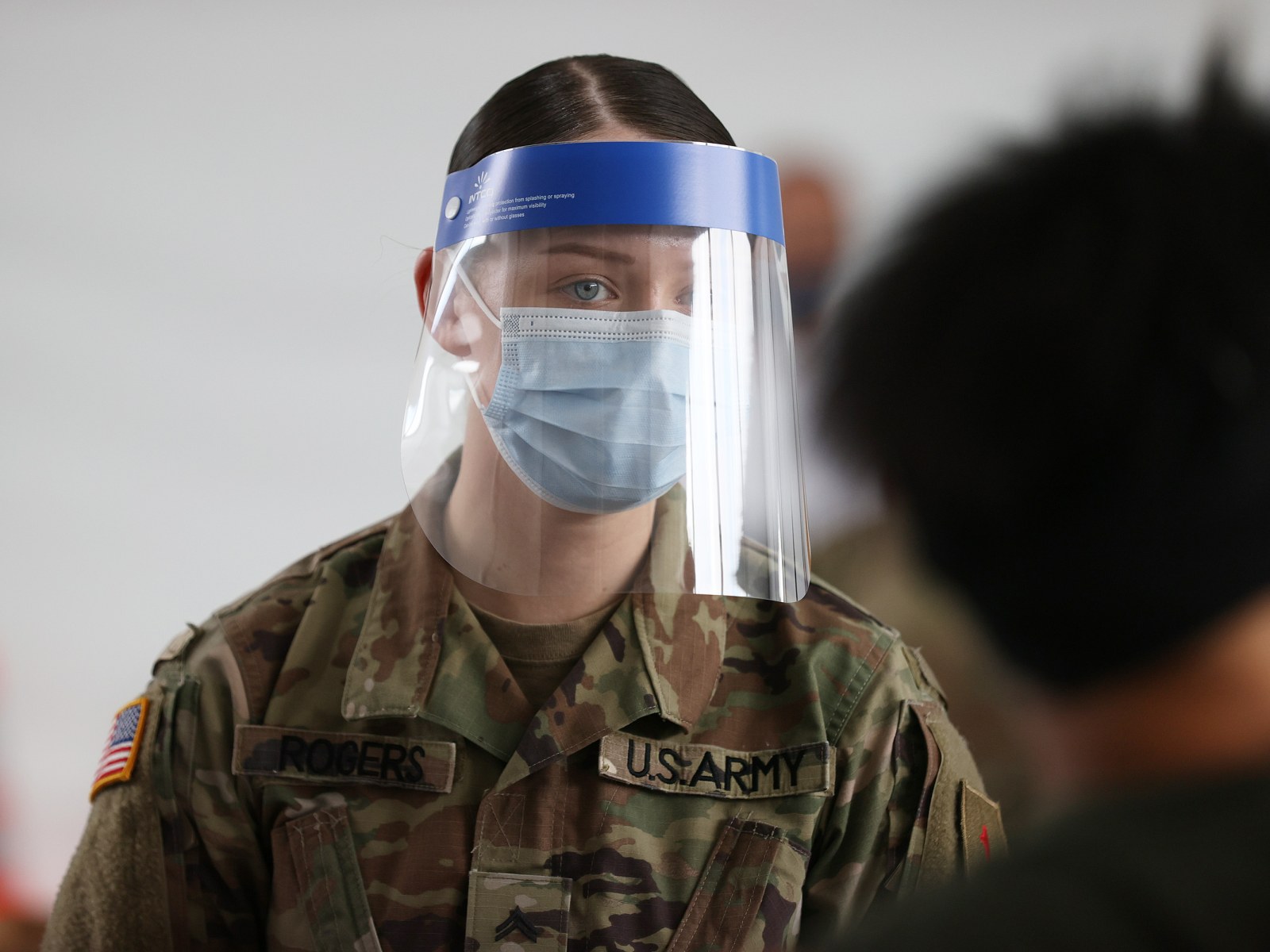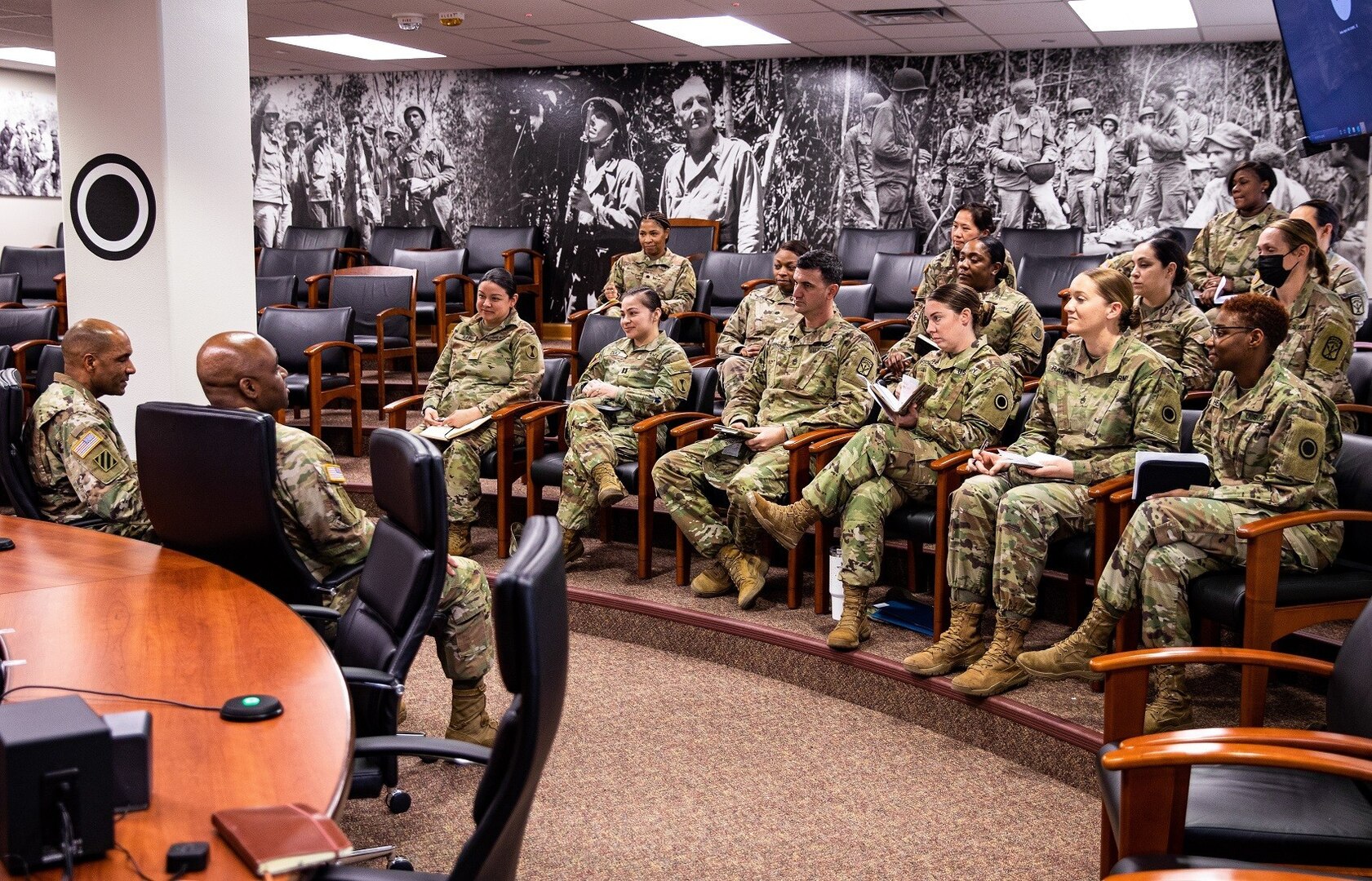New Army Pregnancy Regulation - On April 19, 2022, Secretary Christine E. Wermuth signed the new Parenting, Pregnancy and Postpartum Directive. The guidance will help new mothers return to duty and help all military parents care for military children. (Photo credit: Photo credit: Staff Sergeant Ty Harrison) View original
WASHINGTON - Just before the ceremony when he assumed command of the US Army Reserve in 2012, he suffered a stroke. Kelly Bell felt sick. His fellow soldiers examined him anxiously.
New Army Pregnancy Regulation
Bell said she only got morning sickness after she found out she was pregnant with her first daughter. He wanted to attend the pre-command course, but according to the rules of the time, pregnant soldiers were not allowed to attend the training classes.
Army And Air Force Maternity Uniform Lineup Us Patriot Blog
"My applications were rejected over and over again because I was pregnant, despite being 100 percent in the classroom," said Bell, now a lieutenant colonel in the reserves. “I had a temporary profile and could not go to class. So I had to wait until she was born.”
Bell, commander of the 7203rd Medical Support Unit in Hobart, Indiana, has known pregnant soldiers who have faced challenging situations since giving birth to her daughter nine years ago.
So, in February 2021, Bell joined other military parents in submitting a field white paper that identified five barriers that pregnant and postpartum soldiers face. This white paper inspired a working group at headquarters, which conducted an in-depth review of pregnancy, postnatal and parenting policy over the past year.
The result of this effort is the new Parenting, Pregnancy and Postpartum Guidance, which updates regulations for parents and families in 12 policy changes included in the omnibus guidance.
Navy Unveils Maternity Uniform Pilot Program For 2022
The policies will not only help new military mothers return to duty, but will help all parents better care for military children and expand their families as their military careers continue.
Senior leaders join policymakers from across the force to sign the Parenthood, Pregnancy and Postpartum Guidance at the Pentagon on April 19, 2022. Pictured from left to right in first row: Gabriel Camarillo, Undersecretary; Lt. Col. Kelly Bell; Major Sam Winkler; Christine E. Wermuth, secretary; Staff Sergeant Nicole Pierce; Amy Kramer. Second row left to right: Lt. Gen. Gary Brito, G-1; General Joseph M. Martin, Deputy Chief of Staff; Command Sergeant Major Michael Grinston, Master Sgt. (Photo credit: Staff Sergeant Ty Harrison) View original
"We're recruiting soldiers, but we're keeping families," said Chief of Staff Gen. James C. McConville said. "Winning the war for talent means making sure our best and brightest don't have to choose between work and family."

Secretary Christine E. Wermuth approved the initiatives on April 19 and issued a directive today that will work to ease many of the administrative burdens parents face.
Makeup, Nail Polish And Highlights Are Now All Parts Of The Modern Soldier
The task force preparing the proposal included members of the Directorate of Manpower and Reserve Affairs, the Training and Doctrine Command, the Office of the Surgeon General, and the G-1.
To help inform the changes, Amy Kramer, lead author of the guidance, and Major Sam Winkler, who contributed to the guidance, included feedback from various parenting groups, such as "The Mom Life," and leaders around it on social media. the world . Leaders supported sweeping changes that put people first in the instruction-writing process, Cramer said.
Sergeant Carrie Vargas, a human resources sergeant stationed at Joint Base Louis McCord, Washington, holds her now 10-month-old son, Keanu. Keanu was born with a congenital heart problem. Vargas said her command team at Fort Bliss, Texas, and JBLM helped adjust her placement so she could care for her son before and after the heart transplant. (Photo credit: Photo with permission) View original
One story that stood out for the task force came from Sgt. Carrie Vargas, human resources sergeant for the 508th Military Police Detention Battalion.
You Can Be Any Rank And Make Changes In The Army;' Thunderbolt Soldier Influences Army Policy
In his first month of life, Vargas' son Keanu has already gone through more medical complications than most babies face.
In February 2021, a medical specialist at Fort Bliss, Texas noticed abnormalities in his condition and tests revealed that Keanu had a congenital heart defect.
Vargas and her husband, Staff Sgt. Christopher Vargas, was reassigned to Joint Base Lewis-McChord in Washington to access facilities that could treat his son's debilitating condition.

At the hospital, Keanu has a heart attack. Staff put him on an external resuscitator and ventilator. After a failed open-heart surgery, doctors informed the Vargas family that their newborn needed a heart transplant, and that he was struggling to breathe on his own.
New Army Leave Policy More Flexible After Childbirth, Gives Three Weeks Off To Fathers
Keanu and his family then had to wait several months for a donor and he finally underwent surgery on October 2. He later suffered a brain hemorrhage during the operation, requiring brain surgery and the implantation of a medical device.
Fortunately, his command team at JBLM was supportive and allowed him to be with Keanu. Son had successful transplant surgery, but still has special needs.
Vargas wishes other new parents had the necessary conditions to care for their newborns, especially those with severe birth defects like Keanu. She attends college regularly and also takes care of her three children. An advocate for new parenting, pregnancy and postpartum guidance, Vargas said her command team has managed the transition back to duty, but she knows other military parents don't always have the same opportunities.
Changes to the directive include a new provision that a parent will be suspended for one year from referral, operation and training to stay with their newborn after one working day. The changes also require a new provision standardizing convalescent leave to 42 days for soldiers and their spouses who experience pregnancy loss. Another amendment gives female soldiers a one-year exemption from physical fitness tests after pregnancy ends.
Ranks Push Back On Criticism Of Pregnant Women In The Military
"Because of [previous] policies, it's hard to manage and be a mother and a soldier," said Vargas, who has endured every awkward encounter and operation with her son.
As the group's administrator, Bell learned that newly breastfed soldiers didn't have enough space to store their breast milk while on duty, especially during field training. She said soldiers often have to get rid of precious milk, which causes mental anguish.
"It's a broad question when units go into the field for training," Bell said. "There are a lot of young soldiers who don't know how to tell their leadership, 'Hey, I'm breastfeeding, how can you support me?'

The new directive provides up to a 24-month grace period for soldiers who breastfeed for assignments that involve deployment, deployment, combat training center rotations or other training programs where breastfeeding cannot be provided.
How One Airman's Experiences Gave Birth To New Policy On Maternity Uniforms
"We believe all of this will have a major impact on our ability to recruit and retain talent and improve the well-being of all parents," said Amy Kramer, senior policy officer.
Another important change: several professional military training schools will be opened for commissioned officers and non-commissioned officers. It will allow pregnant NCOs to attend the Sergeant Major Academy, and temporary promotions will remain available indefinitely for all pregnant and postpartum NCOs.
Previously, soldiers in the temporary profile were not allowed to attend or complete professional military training. These changes help keep soldiers from falling behind in their careers because of pregnancy, Kramer said.
In an effort to establish comparable leave and accommodations across components, the directive also implements paid leave for reserve component [RC] birth parents, allows commanders discretion to allow pregnant RC soldiers to attend and complete active duty tours, and extends several existing active placements. . RC Army.
New Army Policy Seeks To 'normalize Parenthood' For Soldiers
This directive authorized soldiers to wear service uniforms during pregnancy and up to one year after childbirth to reduce the expensive cost of changing clothes. During this time, Soldiers can wear a combination of combat and maternity uniforms during pregnancy and delivery, while safely returning to a healthy body composition after birth.
Under previous regulations, recently pregnant female soldiers had to change their uniforms or buy a brand new uniform, which could cost up to $700.
"Our young Soldiers have told me that they spend hundreds and hundreds of dollars, either to buy new uniforms or to have [their] existing uniforms adjusted soon after they give birth," Winkler said. "Because their leadership forced them to show up at events in their official uniforms."

"Soldiers often resort to extreme measures to try to get back to a normal weight and body composition; whether it's crash diets, liquid diets or [diet] pills," Bell said. "And many soldiers [stopped] breastfeeding because they were trying to lose weight quickly."
Army Directive 2022 06
As part of a larger focus on improving the welfare and lives of its people, the service is seeking
Army fleece jacket regulation, army regulation for pregnancy, regulation on pregnancy in the army, us army boot regulation, army regulation 635 200, army socks regulation, army regulation on pregnancy, army regulation for uniform, army pregnancy regulation, army gomor regulation, army regulation sunglasses, us army sunglasses regulation

0 Comments